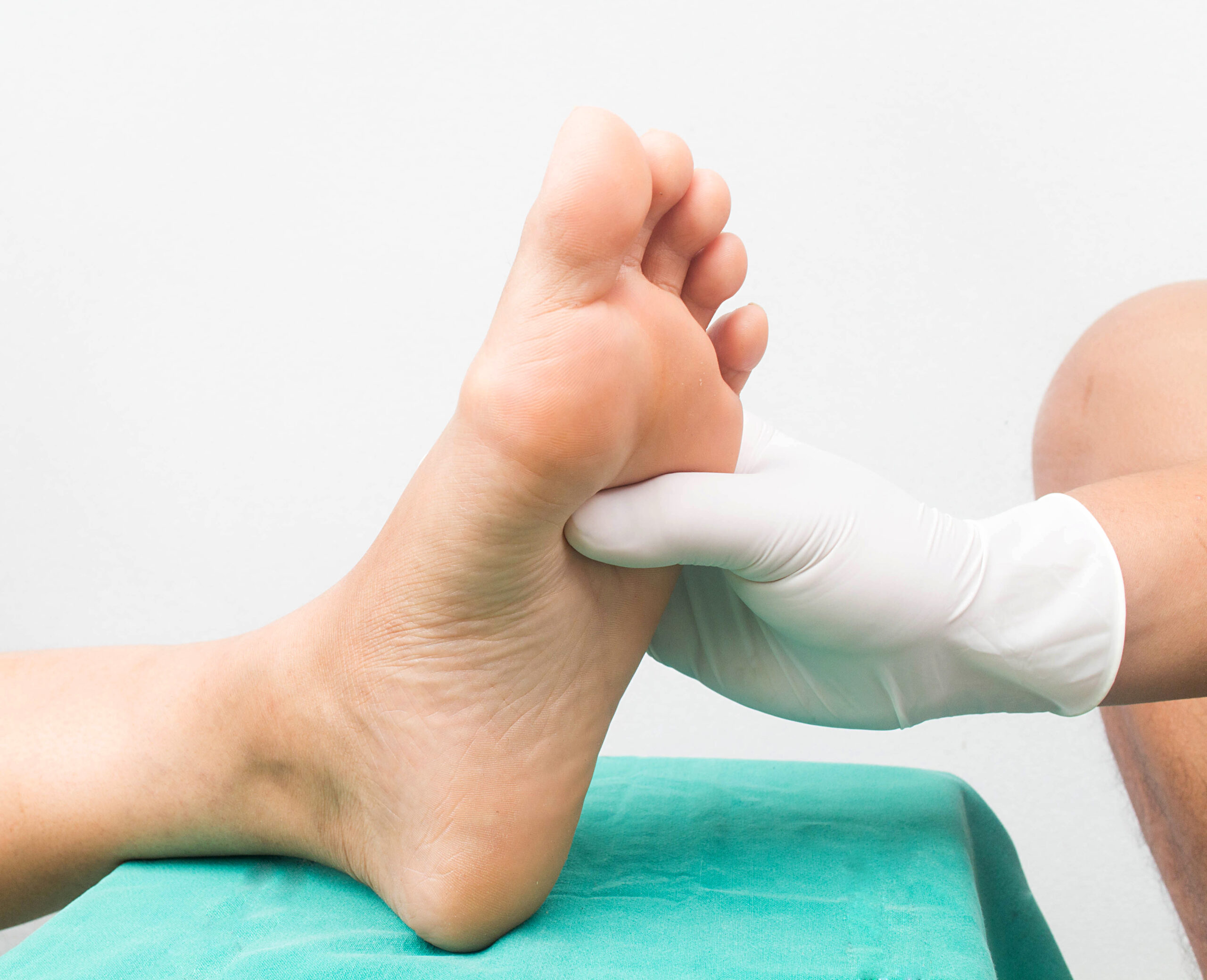Diabetes and foot problems frequently go hand in hand due to poor circulation and nerve disease. However, with regular doctor appointments, routine foot care, and well-managed blood glucose levels, the risks can be minimized or even prevented.
Everyone experiences occasional cuts, sores or blisters on their feet. And with proper care, they can be treated relatively easily. For people with poor circulation, however, those seemingly minor injuries can be much more serious. With less blood flow the healing process can take significantly longer and increase the risk of infection. Infections are very serious and can lead to gangrene and even amputation, which is a last resort in order to avoid the spread of infection to the rest of the body (National Institute of Diabetes and Digestive and Kidney Disease, 2017).
Additionally, diabetes can lead to nerve damage, also known as diabetic neuropathy. Diabetic neuropathy disrupts the nerves which can lead to foot injuries going unnoticed. Cuts or blisters that typically cause discomfort can be overlooked by those with diabetic neuropathy for much longer as they simply might not feel them (University of Michigan Health, 2020). The progression of these injuries can lead to serious and life threatening infections.
Diabetic neuropathy in the feet can also affect the way people walk. The sense of numbness and pain caused by this nerve damage can lead to overcompensating and putting pressure on different areas of the feet. This change can lead to foot abnormalities, injuries and even deformities over time (University of Michigan Health, 2020).
All of these risks can be minimized or prevented with proper care. Checking and washing feet daily, wearing socks and/or shoes at all times, regulating glucose levels, and contacting a doctor about any questions or concerns are ways to efficiently manage foot health (UC Davis Health, 2022). Here at Podiatry of Greater Cleveland, our providers work with diabetic patients to create personalized foot care plans in order to keep them safe and healthy. If you are diabetic, steps can be taken to incorporate foot care into your routine. And those steps can make a huge difference in your overall health and quality of life. Contact our office to schedule an appointment today, and we can work together to address any concerns and create a foot care routine that is right for you.

